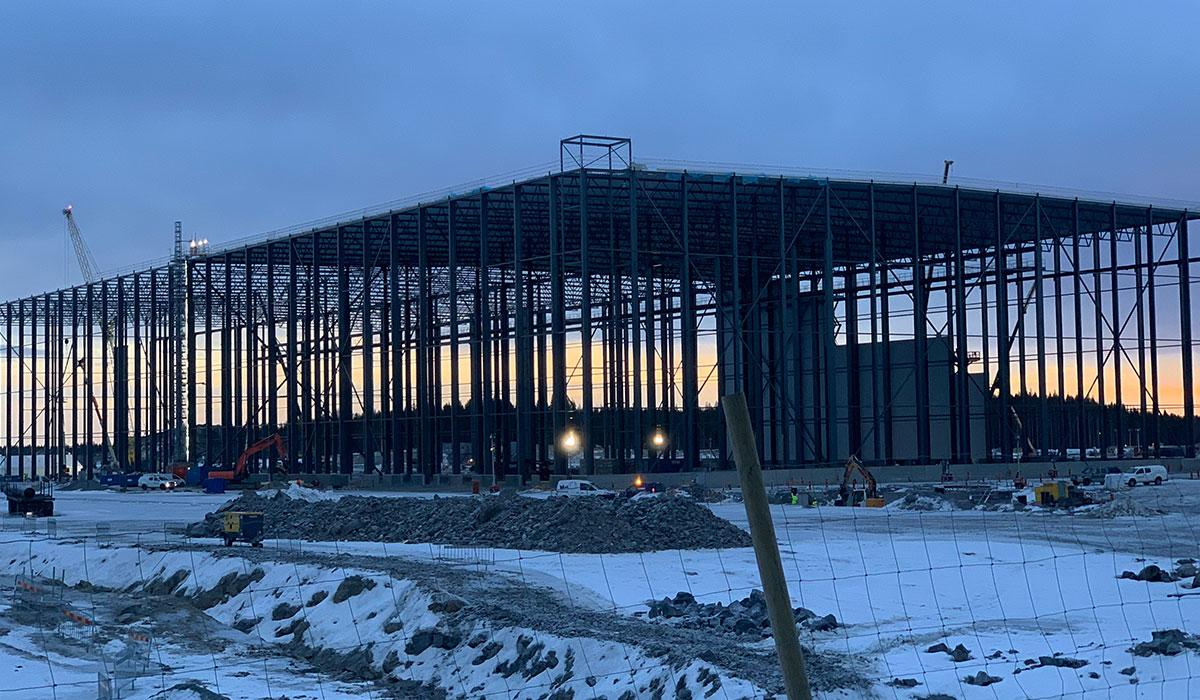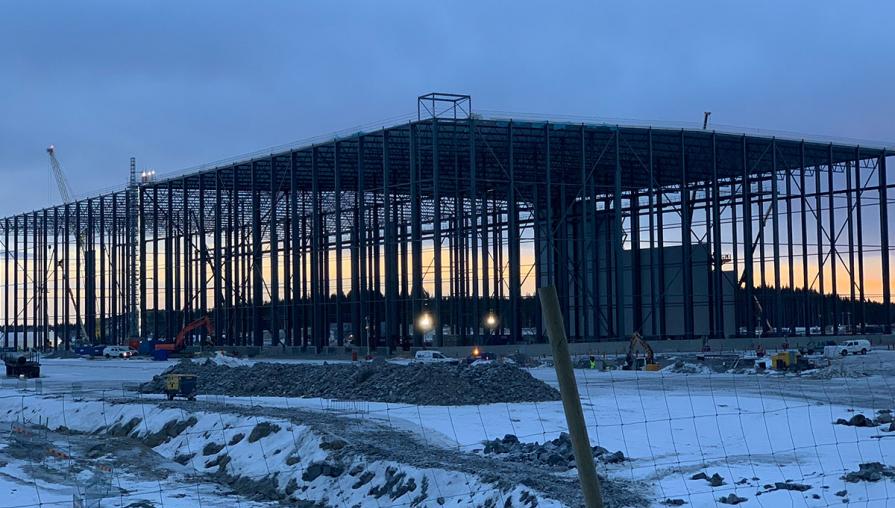
TMCC’s Applied Technologies and Adult Basic Education programs are getting international attention. Earlier this month TMCC faculty Randy Walden, Paul Seybold, and Cynthia Pierrott traveled to Skellefteå—a small town in Northern Sweden—as consultants and guides to local and regional leaders in response to new economic development that’s happening in the region. Northvolt, which manufactures lithium-ion batteries, is constructing what will be one of Sweden’s biggest industrial projects in decades outside this tiny town of two-lane roads. It is projected that the presence of the factory will bring 3,700 workers to the town when construction is complete in 2023. The impact, as you can imagine, will be considerable.
“Their current situation is reminiscent of when the Gigifactory was set up in our region,” said Walden, who is an instructor in the Cyber-Manufacturing program, and who has witnessed the changes that happened to not only technical sciences curricula but to the traffic patterns and the price of housing when Panasonic and Tesla came to town.
Last year, a delegation from Skellefteå visited the Reno/Tahoe area and was impressed by the partnership that has formed between TMCC and local industries. The partnership resulted in stackable skill certificate programs that can lead to degrees—and more importantly skill sets—that these employers wanted. The delegation asked for Walden, Seybold, and Pierrott to present their success and lessons to Skellefteå civic leaders in a series of conferences and meetings.
“The Governor’s Office of Economic Development in 2018 reported a 55% increase in manufacturing employment in the Reno/Sparks area since 2014,” Walden said during his presentation at a regional conference that explored how the community can adjust to such rapid growth. Walden’s presentation focused on training large volumes in a fast and flexible way. After all, today there are an estimated 12,000 people working at the Gigafactory—employees that needed specific education and training, which resulted in training programs like TMCC’s Panasonic Preferred Pathway (P3) training program.
More broadly, the impact of this has been undoubtedly positive to the local economy, but Walden cautioned that there are two sides to the statement “build it and they will come.” One of his most memorable pieces of advice (albeit unintended) was for those in Skellefteå to consider building a freeway with 8-lanes in both directions to the new Northvolt facility because “...it will only take one wreck to create considerable traffic delays that will have an impact on the entire community,” he said, citing a few local examples caused by increased traffic.
Skellefteå is a part of the Västerbotten region, which is known as the “northern sparsely populated areas.” According to a 2017 report, a disconnect between the structure of Västerbotten’s regional economy and education has existed for some time. With the arrival of a major manufacturer, the need for a skilled labor force will be great. Additionally, changes to the community’s infrastructure (including housing and transportation) must be made before it could feasibly support a large manufacturing entity like Northvolt. And then, of course, there’s the question of training a competent workforce with the skills the company requires.
Pierrott, Program Director of TMCC’s Adult Basic Education and English Language Learning programs presented on possible solutions for educating future employees with skill sets and language ability. Literacy in Swedish is required for citizenship in Sweden, but Northvolt wants its factory to function exclusively in English. In the past few years, a grant-funded program at TMCC that combines skill and language development for prospective Certified Nursing Practitioners (CNA) has boasted an 80% pass rate for program participants. The program’s been so successful, a similar program was launched this semester for HVAC/R.
The exchange of experience and advice was so successful, Seybold jokes that those who attended the conferences were reluctant to let the team—Walden in particular—return to the States. “They didn’t want to let Randy go,” he joked.
Of the collaboration between two towns who will continue to experience growing pains—Reno and Skellefteå—Seybold hopes that representatives from each remain in touch. “I’d like to go back in a few years to see the changes that happen—even though we shared our experiences with them, they will undoubtedly come up with their own unique solutions. Keeping in contact will help all of us to ‘think outside the box’ when developing solutions. We could continue to learn from each other,” he said.
The trio was tasked—or treated—to more than just work, however. On their final day in Sweden, Seybold, Walden, and Pierrott traveled north to visit members of the reindeer-herding Sami people who live in temporary dwellings called lavvu while they follow their reindeer herds, which typically contain 16,000 animals. Like every vocation, the group learned that herding reindeer has its own best practices: adhering a bell to the slowest reindeer in the herd—and not the leader—will enable you to find them easier.
While there are no future trips scheduled to Sweden, Seybold hopes that the contacts they made could potentially lead to fruitful faculty and student exchanges and further discussions on the evolution of education and industry.
“What I’ve learned... is that we need to be proud of what we’ve done at TMCC with our industry partners,” said Walden. “That has really put us on the map.”
For more information about Applied Technologies at TMCC, contact the department at 775-856-5300.














